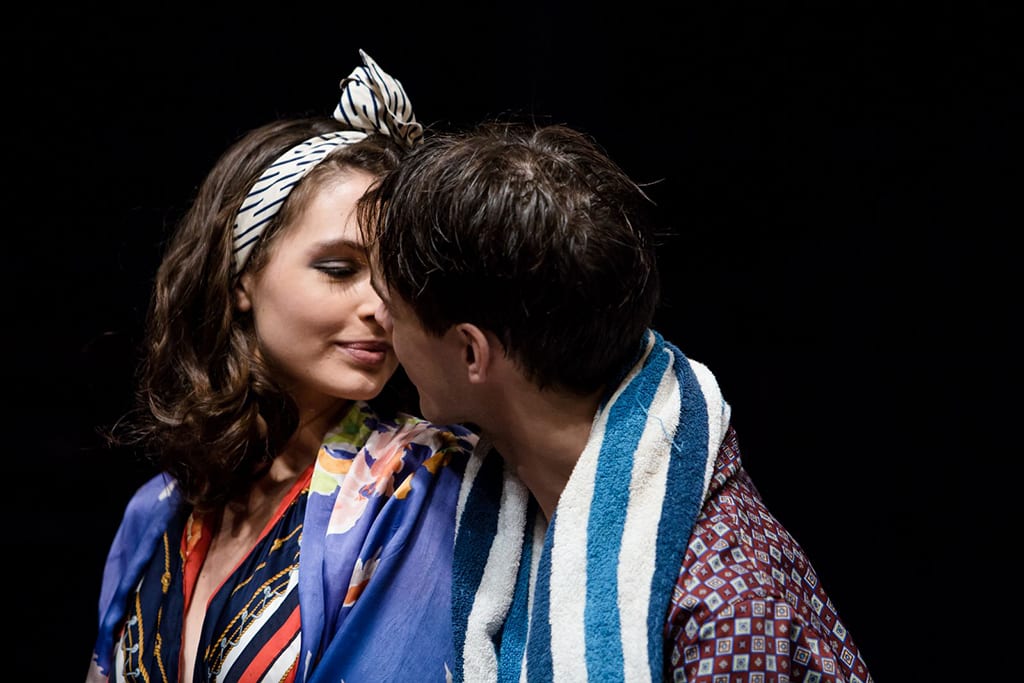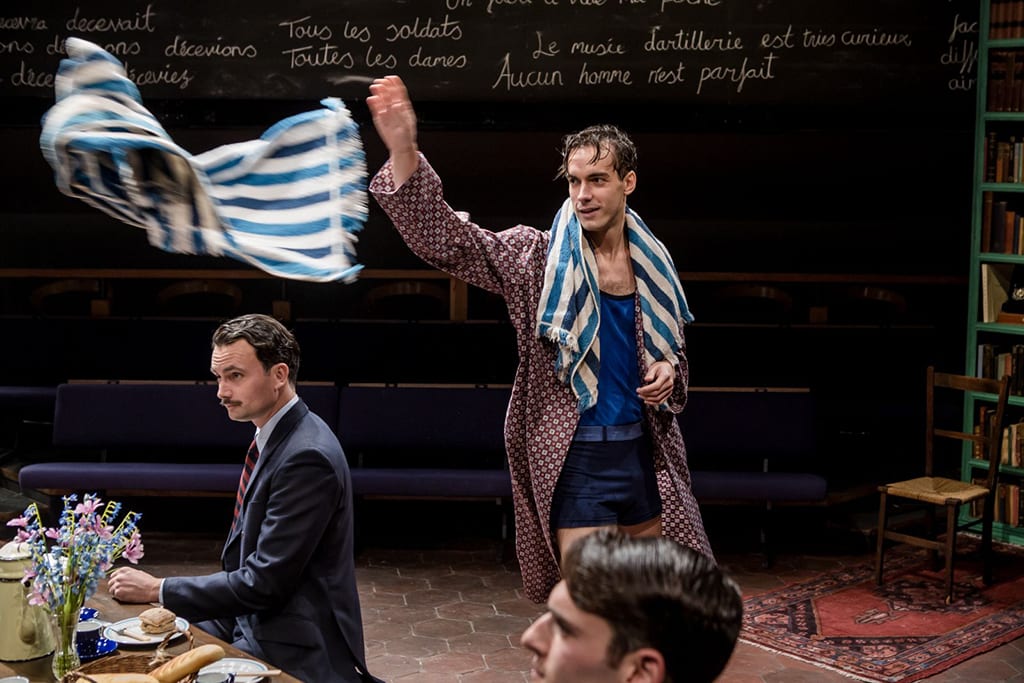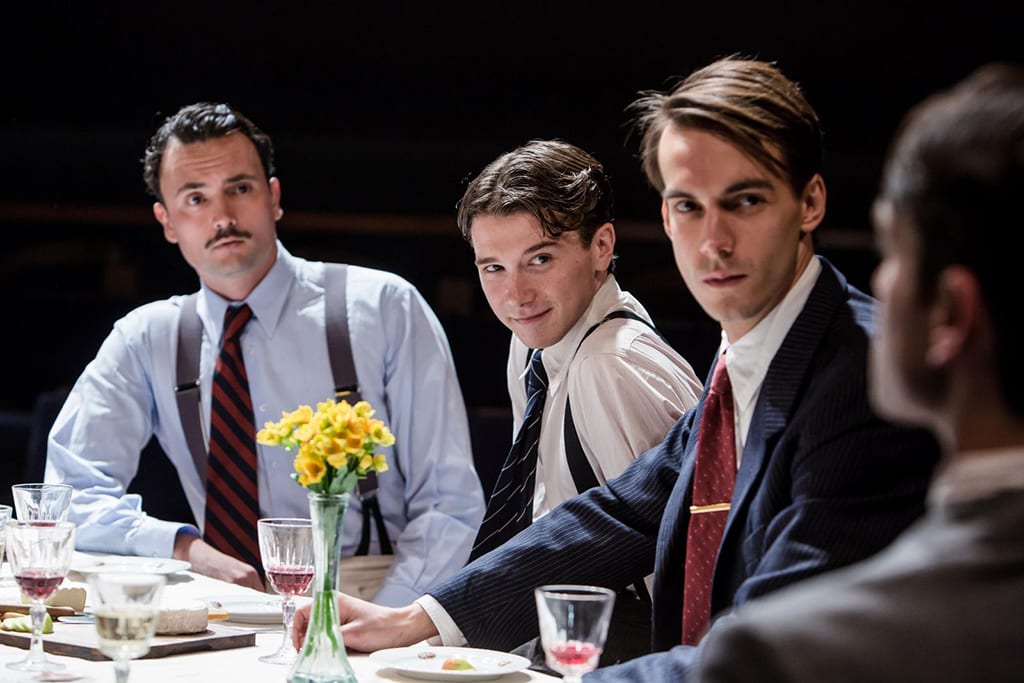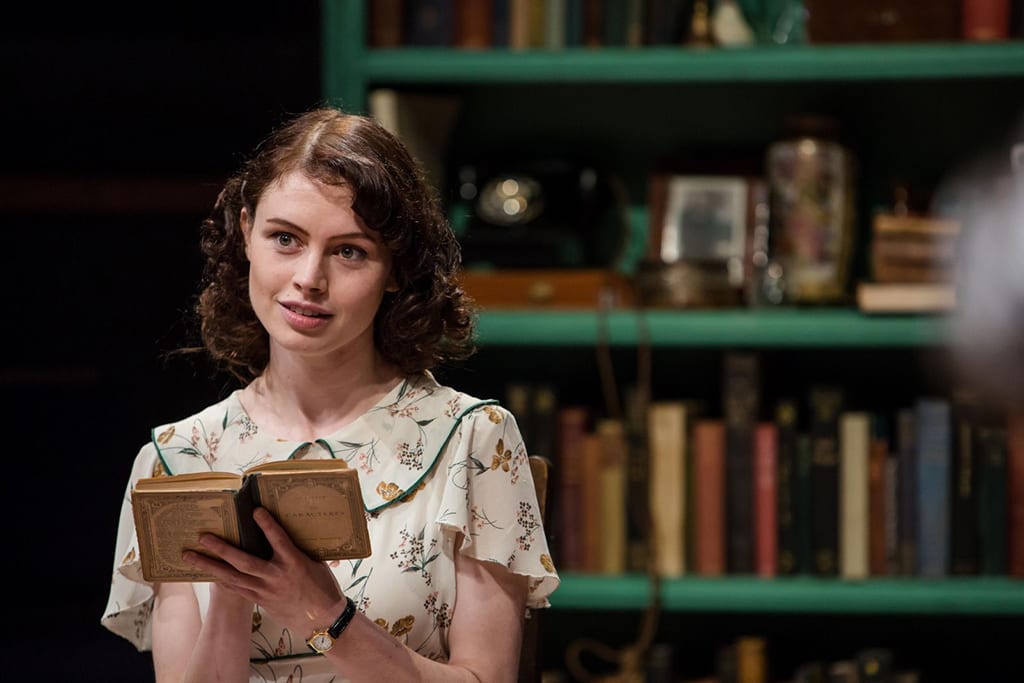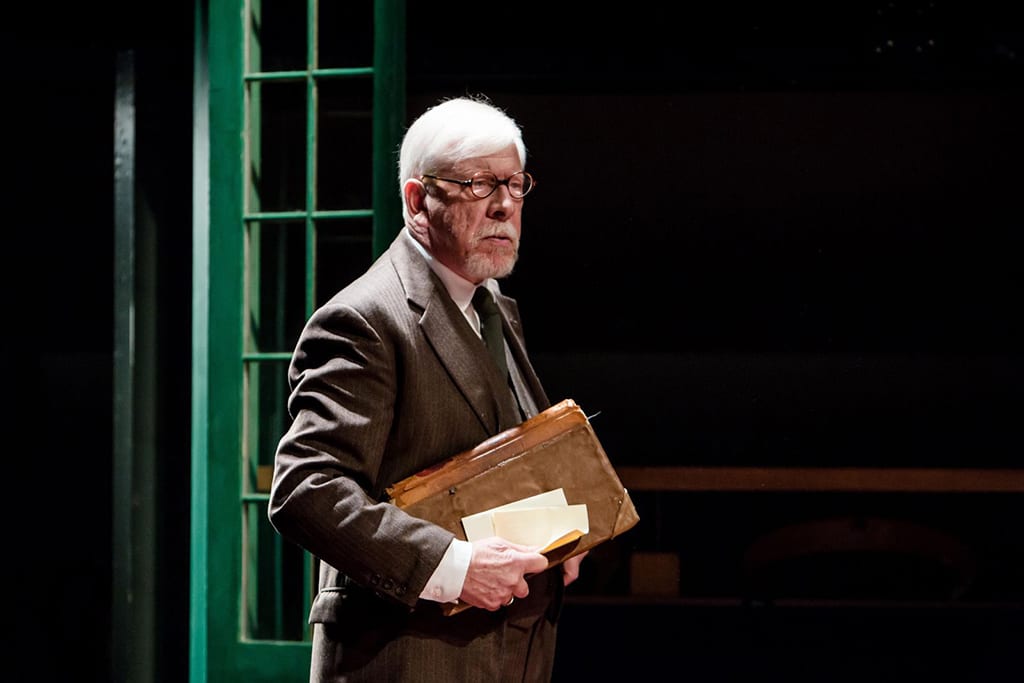A revival, after many years of neglect, of French without Tears makes for a very interesting, as well as entertaining evening at Richmond’s Orange Tree Theatre. This is a very brightly performed, energetic production and the predominantly young cast seizes their comic opportunities with relish.
During the late ‘thirties, and for a decade after the war, Terence Rattigan was one of the darlings of London theatregoers. He demonstrated with great but unobtrusive skill the virtues of the well-made play, whether comedy or near tragedy. His happy situation and status were knocked off their pillar from 1956 onwards by John Osborne’s Look Back in Anger and the critical welcome extended to the ‘kitchen sink’ group of playwrights consisting of Osborne and others who followed, more or less, in his footsteps.
Rattigan was a Harrow and Oxford man and his plays reflected the concerns and difficulties, in general, of people like himself. His was a privileged and intellectual background, and this is reflected in his plays.
French without Tears was a huge success in 1936 and will, I expect, a huge success at the Orange Tree, although present day audiences will probably see the characters on show from a rather different standpoint than the theatre goers of the prewar years.
We are in what appears to be a singularly ineffectual language school in a small town on the channel coast of France. The English students there, all male, are supposedly learning French in order to further their careers in ‘the diplomatic’ and other callings which require at least a smattering of that international language. They are by no means devoted scholars and such French as they utter has a totally English accent. Their vocabularies are miniscule and their syntax non-existent. They want to get into ‘the diplomatic’, or similar cushy jobs, purely for a salary and status, both of them apparently achievable without much work. Some of the scenes which were played in a mixture of English and lumpenly incompetent French, got some of the loudest laughs of the evening.
The young French females, who are either teaching them or attending to their domestic needs, mostly rather fancy the idea of marriage to an Englishman. However, one of them, Diana (Genevieve Gaunt) is, quite simply, an absolute man-eater.
This play is best described as a situation comedy. It is virtually plotless. Its segments all touch in a glancing fashion on the battle of the sexes and nothing very much is resolved as it moves along or at its conclusion.
This is not to say that it is without interest but the interest it has is one that Rattigan was obliged by the attitudes of the times to keep largely disguised.
The women look either towards marriage or towards an exciting but impermanent affaire. The male characters, however, are, in ways kept generally subdued, misogynistic, keener on a booze-up than a sex romp.
This element in the play reflects Rattigan’s own homosexuality. The hands-off treatment the issue is given reflects the fact that homosexual activity was in the thirties and for a good while afterwards a criminal offence.
Thus, French without Tears reflects an interesting moment of approaching change in English social history. It is written and structured with sufficient skill to keep an audience listening and laughing and I think will become yet more successful in this respect as the run progresses and these young actors learn from audience responses how to exploit each element for greatest effect.
At present, the largest impression is made by Genevieve Gaunt’s man-eating Diana. Sarah Winter, as the relatively and engagingly innocent Jacqueline, in a quieter, more hesitant way, provides a powerful and on occasion very touching element of sincerity.
David Whitworth, playing Monsieur Maingot, the dapper but slightly bumbling owner of the school lends memorable charm to his brief appearances
I cannot imagine Orange Tree audiences finding this play anything other than very amusingly watchable. I suspect, however, that it little of the detail of the evening will stay very long in their memories.

